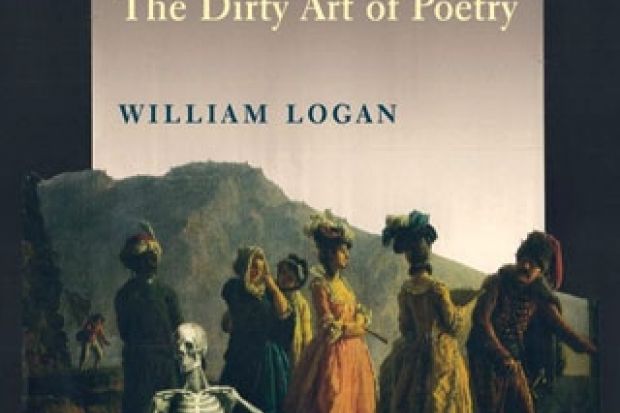Reviewers of contemporary poetry sometimes pull their punches, perhaps because as poets themselves they fear the repercussions. (No peace-loving flower-arrangers they, prone as they are to revenge shootings in dark alleys.) William Logan is the exception. Throughout his six collections of essays he has analysed the poetry of Gjertrud Schnackenberg, Natasha Trethewey and Yusef Komunyakaa alongside that of W. H. Auden, Walt Whitman and Shakespeare, among others. By this means he demonstrates the importance of applying the same standards to our reading of the contemporary and the canonical.
He is right, but you need steady nerves to pass judgement on a constituency so given to rancour – which helps to explain why The Hudson Review famously pronounced Logan “the most hated man in American poetry”. Perhaps such a sobriquet would be warranted were he partial or mad – but he is one of the most discerning critics I have ever read. Yes, there are some reviews in Guilty Knowledge, Guilty Pleasure that might come under the rubric of “sniffy”, but they are all fair-minded and I don’t think anyone whose work is discussed has much to complain about. After noting Charles Bukowski’s “hangdog manner, his mournful howls, his constant bellyaching”, Logan admits, “If you squint, there’s a little Catullus in Bukowski”; despite her “weird affectlessness”, Anne Carson is praised for Nox, a “dark meditation on death and memory”; Thomas Lynch, convicted of “midwest Babbitry”, is exonerated for his Irish poems.
For evidence of his sharpness, look at Logan’s review of Geoffrey Hill’s Oraclau, an impenetrable volume from which he squeezes more sense than anyone else I have read. And I don’t think anyone has been more straightforward about the half-heartedness of Billy Collins’ recent work: “No one ever went to Collins for good poems. You went for the whimsical premise, the pang of ubi sunt regret, the genteel absent-mindedness. Now you get a poem that looks like a bird house slapped together in the back of someone’s garage.”
Logan is equally demanding of everyone – and rightly so. Poetry is not an art for the complacent. And he demands most from those whom he respects, intolerant of mannerism and lack of conviction: “Many of Heaney’s new poems start with the old flair and dash, but after a few lines lose their way and sputter out”; “Glück has forced a whole world into a snow globe”; C. K. Williams’ new poems “are blandly indifferent to style, as if he’d traded poetry for the talking cure”. What he has to say about Paul Muldoon is underpinned by a deep respect for his potential: “The poems of this Artful Dodger have become little slot machines of half-baked half-rhymes, phrases shuttling and shuffling like a great Manchester loom – all for something that looks as if Stevens’s Sea Surface Full of Clouds had been run through a blender.”
Logan has earned the right to this: a formidable poet himself, he knows how demanding an art it can be. Yet there is nothing inward about his stance. And he is as testing of scholars as he is of practitioners. One of the glories of Guilty Knowledge, Guilty Pleasure is a series of articles about recent editions of the various writings of Elizabeth Bishop; that of her correspondence contains “possibly the dullest footnotes ever written”. This book’s corrective influence is badly needed: the tsunami of experimental poetry and prose emanating from creative writing departments across North America demonstrates how comprehensively those responsible have renounced any pretence to critical thought. Those who aspire to the study or practice of “our savage art” could do no better than read this and Logan’s other collections; they are a masterclass in how to read.
Guilty Knowledge, Guilty Pleasure: The Dirty Art of Poetry
By William Logan
Columbia University Press, 344pp, £24.00
ISBN 9780231166867
Published 8 April 2014
Register to continue
Why register?
- Registration is free and only takes a moment
- Once registered, you can read 3 articles a month
- Sign up for our newsletter
Subscribe
Or subscribe for unlimited access to:
- Unlimited access to news, views, insights & reviews
- Digital editions
- Digital access to THE’s university and college rankings analysis
Already registered or a current subscriber? Login





